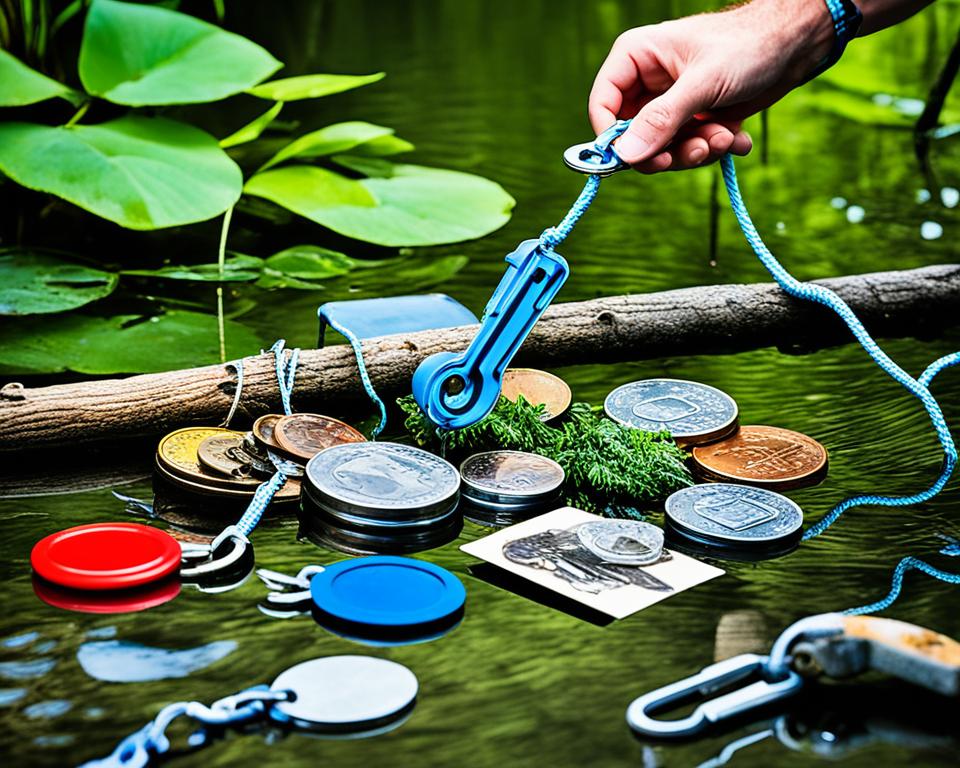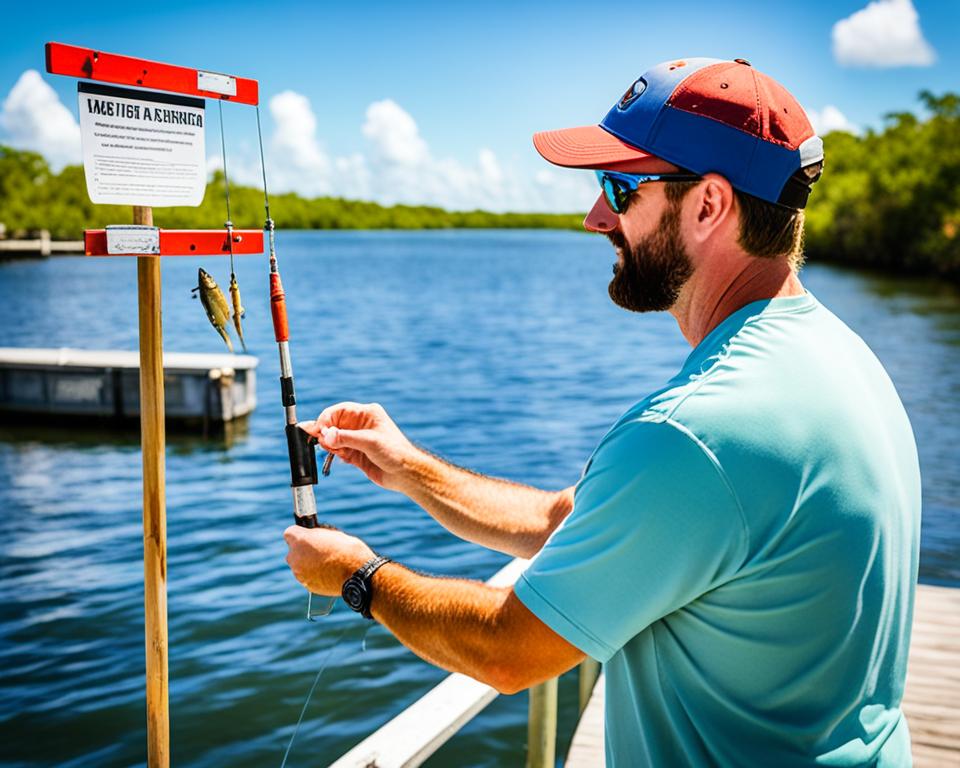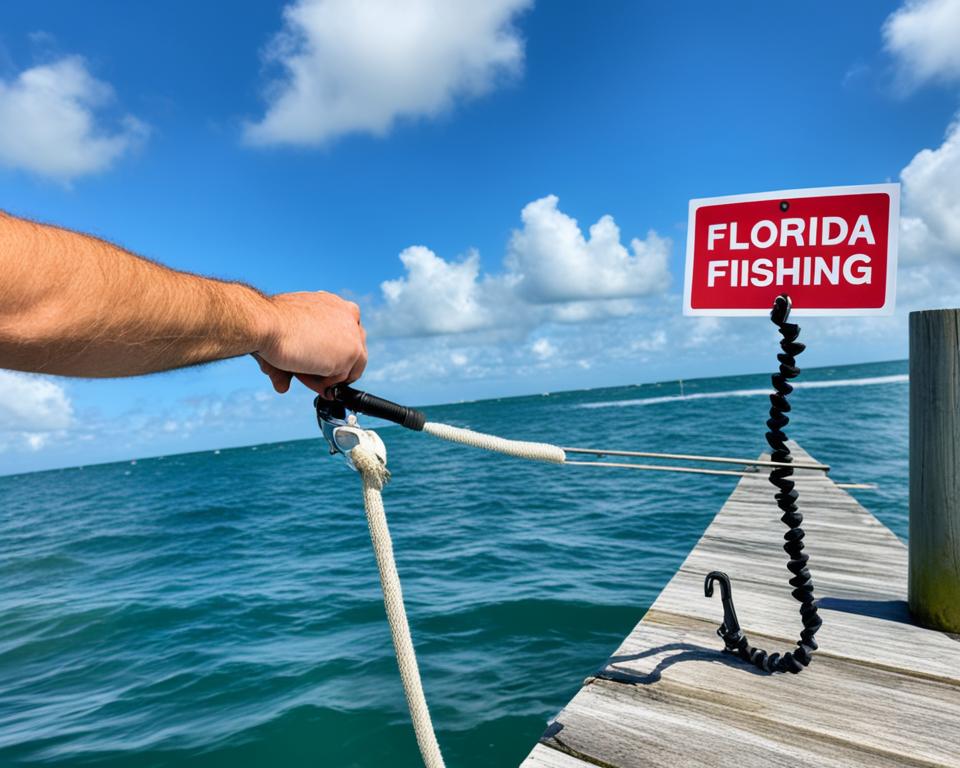Ever wondered if you can indulge in the hobby of magnet fishing in the sunny state of Florida without breaking any laws? With magnet fishing growing in popularity, it’s essential to understand the local regulations to ensure a fun and legal experience.
In Florida, magnet fishing regulations are pretty clear-cut. Yes, you can enjoy magnet fishing in navigable state waters. However, there’s a significant factor you need to consider—historical artifacts. According to Florida laws, these are defined as items over 50 years old. Retrieving such artifacts isn’t just a matter of casting your magnet; it often requires specific permits and permissions.
Unlike South Carolina, where magnet fishing is outright prohibited under the South Carolina Underwater Antiquities Act, Florida provides a more lenient approach. Yet, this leniency comes with a responsibility. Being aware of Florida magnet fishing laws and understanding what you might pull from those waters is crucial for any enthusiast in the state.
Considering the treasure-trove potential of Florida’s waterways, the state’s regulations aim to balance hobbyist excitement with the preservation of cultural heritage. As you gear up for your next magnet fishing adventure, make sure to refresh your knowledge on Is Magnet Fishing Legal in Florida to ensure you follow the law and protect history.
Understanding Magnet Fishing
Magnet fishing has captured the hearts of many as a captivating hobby. The thrill of using a strong magnet to pull up hidden treasures from the depths of our waterways makes it an exciting blend of outdoor adventure, treasure hunting, and environmental stewardship. Let’s dive into what makes this activity so compelling.
What is Magnet Fishing?
So, what is magnet fishing? Simply put, it’s an outdoor hobby where you use a strong magnet—usually attached to a sturdy rope—to attract and retrieve metallic objects from bodies of water. Enthusiasts flock to places like the Mississippi River, which stretches over 2,300 miles, to uncover artifacts like old boat remnants and antique tools, or they venture to the Potomac River to possibly find relics from the Civil War.
Why People Love Magnet Fishing
Why do people love magnet fishing so much? It offers the excitement of treasure hunting combined with the joy of exploring the great outdoors. Whether you’re pulling up lost fishing gear from the Great Lakes or hoping to stumble upon historical artifacts in the Columbia River, each cast of the magnet holds the promise of discovery.

Moreover, magnet fishing has a strong community aspect. Online forums and social media groups make it easy to connect with fellow enthusiasts, share tips, and find the best locations. For example, the Florida Keys are a magnet fishing paradise with their turquoise waters and vibrant marine life. You might find anything from old keys to potential shipwreck remains.
This activity isn’t just about what you find; it’s also about the stories behind those finds. Imagine pulling up a piece of old logging equipment from the Columbia River, steeped in history dating back to the Lewis and Clark Expedition. It’s these stories that make magnet fishing more than just an outdoor hobby—it’s a journey into the past.
Florida Laws on Magnet Fishing
Magnet fishing in Florida is generally allowed, especially in navigable waters. It’s crucial to understand the specific state regulations to avoid any legal issues while enjoying this hobby. Most people are attracted to Florida waters because of the diverse opportunities for this type of treasure hunting.

Navigable State Waters
Florida allows magnet fishing in navigable state waters, with certain restrictions. The term “navigable waters” typically means bodies of water that are large enough to be used for commercial activity or transport. In Florida, all major rivers, large lakes, and coastal waters such as bays and lagoons are considered navigable. Understanding whether a body of water is navigable can help you avoid violations of state regulations.
Prohibited Activities
While magnet fishing is fun, there are some activities that are off-limits under Florida laws on magnet fishing. For example, it is prohibited to disturb or remove historical artifacts that are over 50 years old without proper authorization or permits. Interfering with these artifacts can result in legal complications. Always adhere to state regulations to ensure you’re enjoying this activity responsibly and legally.
Is Magnet Fishing Legal In Florida?
Magnet fishing, for those unfamiliar, involves using a strong magnet to attract metallic items from bodies of water. But is it legal to magnet fish in Florida? Understanding the magnet fishing rules in Florida is key to ensuring a fun and law-abiding experience.
Legal Considerations
First off, it’s crucial to know that magnet fishing in Florida is generally permitted in navigable state waters. That said, what are the vital legal considerations? Florida defines historic artifacts as items over 50 years old. So if you happen upon a treasure of historical significance, you’ll need proper authorization to keep it. Each state has its own definitions and rules regarding what constitutes historic artifacts, making it essential to understand local guidelines.
While South Carolina, for example, prohibits magnet fishing entirely without a proper license due to the South Carolina Underwater Antiquities Act, Florida’s approach is more lenient, yet equally protective of its cultural heritage. Jumping into magnet fishing here, I make sure my activities align with state guidelines to avoid any potential penalties.
Potential Penalties
If you’re wondering about the potential penalties, they can be quite severe. Unauthorized removal of historical artifacts, according to Florida’s laws, could land you in serious trouble, including fines or legal action. So, is it legal to magnet fish in Florida? Yes, as long as you adhere to the magnet fishing rules in Florida and respect the guidelines protecting artifacts.
Knowing these legal considerations can save you a lot of hassle. Next time I head out with my magnet fishing gear, I’ll keep these key points in mind to ensure a smooth and lawful adventure.
Historical Artifacts Regulations
When magnet fishing in Florida, understanding what constitutes a historical artifact is essential. In the state, a historical artifact is any item over 50 years old that is found within state waters. The distinction between modern items and these archaeological finds is crucial.
What Constitutes a Historical Artifact?
Historical artifacts in Florida hold significant cultural heritage, and are legally defined as objects over 50 years old. This classification means that even if you’re enjoying a day of magnet fishing, you need to be aware of what you pull from the water. If you discover an item that fits this description, it’s not just an exciting find but a piece of history. States like Arkansas, where items predating the 1803 Louisiana Purchase are protected, show how varied definitions can be.
Permissions and Permits
Acquiring specific permissions and permits is a must for those who wish to retrieve these historical artifacts. This ensures compliance with regulations focused on preserving Florida’s rich cultural heritage. Similar to Michigan, where artifacts over 100 years old are protected, Florida aims to safeguard these archaeological finds. Without the proper permits, removing such items can land you in legal trouble. It’s about respecting history and ensuring that these precious artifacts are preserved for future generations.
Environmental Impact of Magnet Fishing
Magnet fishing isn’t just about the thrill of the catch and discovery. It also holds an essential role in environmental stewardship. As someone who enjoys this unique activity, I often find myself intrigued by how we can contribute to protecting marine ecosystems. This playful yet purposeful hobby serves a dual function – discovering hidden treasures and cleaning up our waterways.
In my experience, engaging with magnet fishing means practicing a responsible hobby. Every time I pull out a piece of metal junk from a river or lake, I feel like part of a larger effort to make our waters cleaner and safer for both wildlife and people. It’s rewarding to know that I’m helping reduce pollution and bolstering environmental health.
However, it’s not all sunshine and rainbows. This responsible hobby also comes with responsibilities. Improper disposal of the waste retrieved can cause more harm than good. That’s why it’s crucial to follow guidelines for the proper disposal of waste and hazardous materials found during magnet fishing. Doing so ensures the activity contributes positively to protecting marine ecosystems.
Moreover, respecting historical sites and obeying local regulations is a must for anyone serious about this passion. In doing so, we not only avoid legal penalties but also participate in the preservation of cultural heritage. So, the next time you cast out your magnet, remember you’re not just searching for a treasure – you’re actively partaking in environmental stewardship.
Tips for Safe and Legal Magnet Fishing in Florida
Magnet fishing in Florida can be an exciting and rewarding activity, but it’s essential to follow certain guidelines to ensure it’s both safe and legal. Here are some valuable tips to help you get started with confidence.
Choosing the Right Location
When selecting a location for magnet fishing, it’s crucial to stay within navigable state waters, as per Florida laws regarding magnet fishing. Avoid areas designated as marine protected zones, such as some parts of the Florida Keys, to ensure compliance with local regulations. Opt for popular and safe waters such as the Mississippi River in Minnesota or the Columbia River in Oregon, but always put safety and legal considerations first.
Respecting Private Property
One key aspect of safe magnet fishing is to respect private property. Before starting, make sure you’re aware of the boundaries of private land and obtain the necessary permissions if your intended fishing spot lies within such areas. Remember, respecting private property is not only about legal magnet fishing in Florida but also about maintaining good relations with landowners and other anglers.
Proper Disposal of Finds
After a successful magnet fishing trip, it’s equally important to know how to handle your finds. Safe magnet fishing includes the responsible disposal of finds, whether they are modern debris or potentially historical artifacts. For any objects over 50 years old, specific permits might be required, hence familiarize yourself with Florida laws regarding magnet fishing. Taking these steps ensures we preserve cultural heritage and protect the environment.
By choosing the right location, respecting private property, and correctly disposing of finds, we can all enjoy a safe and legal magnet fishing experience in Florida. Happy fishing!
Best Places for Magnet Fishing in Florida
Florida offers a treasure trove of opportunities for magnet fishing enthusiasts. From popular Florida waterways to hidden gems, there’s no shortage of places to drop your magnet and see what you can find. Whether you’re a novice or a seasoned pro, it’s crucial to know where you can do magnet fishing in Florida legally and responsibly.
Popular Waterways
When it comes to the best places for magnet fishing, the Florida Keys stand out as a haven for enthusiasts. The Florida Keys are known for their rich marine history, offering finds like lost fishing lures, keys, and coins. However, certain areas may prohibit magnet fishing to protect marine life and historic artifacts, so it’s vital to be aware of these restrictions.
Other popular Florida waterways include Lake Okeechobee, the Ten Thousand Islands, and Miami’s piers. These spots are frequently visited due to their accessibility and high likelihood of uncovering interesting items. You can potentially find coins, jewelry, and even remnants of old shipwrecks.
Hidden Gems
If you’re looking for more secluded magnet fishing spots, Florida has plenty of hidden gems. Places like the Peace River and St. Johns River offer a quieter experience while still providing ample opportunities to find hidden treasures. These locations often yield unique finds such as historical relics, fishing tackle, and even discarded bicycles or shopping carts.
Lesser-known locations like small canals, lagoons, and ponds can also be rewarding. You never know what you might pull up from these less crowded spots, making them some of the best places for magnet fishing. It’s always exciting to explore new areas that may hold undiscovered treasures.
So, can you do magnet fishing in Florida? Absolutely. With its diverse range of waterways, from the bustling Tampa Bay to the serene Cocoa Beach Pier, Florida offers endless possibilities for magnet fishing enthusiasts. Just remember to adhere to local regulations and respect private property to make the most out of your adventure.
Happy fishing!
Can Baton-Carrying Laws Impact Magnet Fishing Regulations in Florida?
The evolving discussion around baton legality florida can unexpectedly influence magnet fishing regulations. If restrictive baton policies tighten definitions of permissible tools, similar scrutiny could extend to magnet fishing equipment. Lawmakers might assess potential overlaps in public safety concerns, leading to revised guidelines that affect hobbyists engaging in Florida waterways.
Conclusion
As we wrap up our magnet fishing adventure in Florida, it’s clear that a deep understanding of Florida’s legal guidelines and regulations is crucial to ensure a responsible and enjoyable experience. Magnet fishing in the Sunshine State offers enthusiasts a unique blend of outdoor recreation, historical discovery, and environmental conservation.
While exploring public waterways is generally permitted, remember to obtain prior permission before venturing onto private properties. Familiarize yourself with local restrictions, as certain areas may require additional permits. Always dispose of waste and hazardous materials properly to minimize environmental harm.
It’s fascinating to think that this hobby can even assist in uncovering crucial evidence in cold cases, as seen in the recent turn of events in Telfair County. Such discoveries highlight the significance of being responsible treasure hunters, ensuring our actions not only benefit us but also the broader community.
By adhering to these guidelines and embracing the spirit of exploration, we can all enjoy the rich and rewarding experiences that magnet fishing offers. So go ahead, dive into Florida’s waterways, and enjoy the thrill of magnet fishing responsibly and legally!

